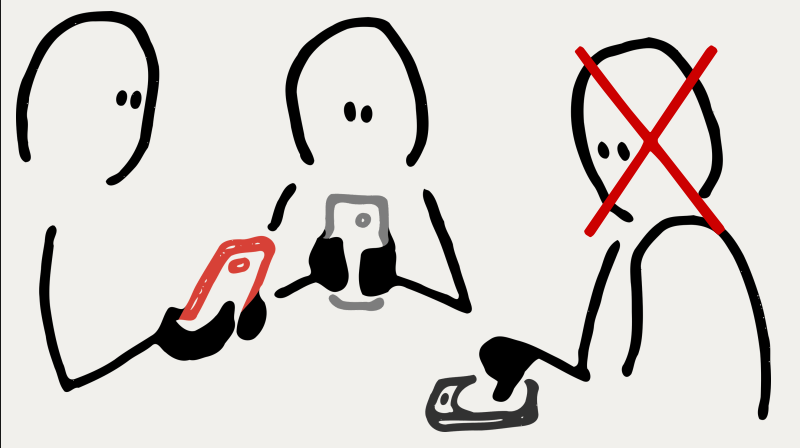Cancel culture is a buzzword you’ve probably heard before. Within the past decade, cancel culture has emerged as a way to hold public figures responsible for any problematic actions and beliefs. Cancel culture, however, has caused debate over whether or not it is a beneficial action or a detrimental one. Cancel culture can often encourage a parasocial relationship with public figures through the use of social media that oftentimes affects the individual in their real day to day life.
Cancel culture has brought up questions as to who the primary targets are as women face cancel culture to a much further extent than men do. Cancel culture has also made its way into our politics. Politicians can now use the term to deflect any criticism that comes their way and spins the term on its head.
With the rise of social media and social media influencers, the public now has a much larger say in who they want to be famous. The public can now post or comment and decide amongst itself what qualifications a person must have to be successful and remain that way. Cancel culture in this way has proven itself to be a useful tool in monitoring the influential and powerful people seen throughout all media platforms.
There once was a time before phones and social platforms were accessible to everyone and the day to day life of public figures weren’t broadcasted to the entire world. You could say and do whatever you wanted without the consequences of public backlash especially for those in power.
We live in a different time now. That’s a fact. Everything is online and recorded even for those who are heavily protected.
In 2020, a black man named George Floyd was killed as a result of police brutality. The entire altercation was recorded and posted to social media which caused massive outrage and protests all throughout the country. The police officer responsible for killing George Floyd was originally placed on administrative leave until the pressure of social media calling for worse consequences landed him without a job and in jail. This is an example of a beneficial cancel culture; demanding justice through social media for someone who has blatantly done something wrong no doubt about it.
Cancel Culture is a much different story for the people in the media however. Celebrities and influencers are seen in the social eye as privileged and without the support of the public they would have nothing. Due to this they are often held to a much higher standard and the development of parasocial relationships to these people is much more probable.
Sydney Sweeney getting cancelled for her “good genes” ad or James Charles getting cancelled for grooming minors are both examples of cancel culture but are actually very different.
Sweeny has gotten canceled in a way that has genuinely negatively impacted her career. Her cancellation has led to a deteriorating mental health. Charles, who was confirmed grooming minors and allegedly supported a physical abuser, has yet to really face any genuine consequence. His online presence is still heavily supported by a loyal fan base and his company is still flourishing.
What Charles did could be considered worse. Charles directly and negatively affected the lives of innocent people that had less power and influence. So why is it that Sweeny is so much more universally hated?
Gender bias is why. Women in media are held to a much higher standard in order to not be cancelled then men are. A woman can not be too sexual. A woman can not be too male-oriented. A woman can not be a Republican. A woman can not say the wrong thing. All while men get away with doing all of that.
On Love Island USA, Cierra Ortega was kicked off the show after an old social media post of hers showed her referring to herself using an Asian slur. Austin Shepard from Love Island USA was on the same season and had old social media posts come up where he supported the Trump campaign and pushed alt-right propaganda that uses racism as a way to gain support.
Now, if you are someone who thinks that both of these are awful and they should both get the same punishment, congratulations you are a part of the cancel culture with no gender bias. Unfortunately that is not what most people believe though. Shepard got to stay on the show and has a huge social media following that supports him while Ortega was cancelled badly and has lost out on potential brand deals and a bigger social media following.
Cancel culture also holds a virtue that can be problematic in of itself. That virtue being that nobody can change. Numerous people have been cancelled for things they said or believed decades ago. To hold the belief that someone is the exact same as they were when they were a teenager or even a young adult is absurd. This can be extremely damaging to those who have changed for the better and invalidates personal experiences that the public does not even know about.
This is where cancel culture becomes a sticky situation. If the public cherry picks who to cancel and who not to cancel based on factors such as gender, race, age and how funny a person might be, then the action of canceling holds less weight and the act of holding someone responsible for doing problematic things starts to work less and less.
A rise in public figures and politicians that push white supremacy, anti-LGBTQ and anti-women propaganda has become more and more prominent in American culture. Usually these people with these beliefs would be “cancelled” but because cancel culture has been overused and used inefficiently there’s a large population in America that holds resentment for it. In response to that resentment these propaganda pushers have been able to gain support rapidly using “anti-cancel culture” rhetoric to gain the support of those who are tired of it.
This is where canceled culture can be deemed as detrimental because in the act of holding people to — oftentimes impossible — standards the outlash has caused people like Nick Fuentes and the late Charlie Kirk to thrive on social media.
Cancel culture is beneficial when making sure that the most powerful people in American culture face repercussions for their actions. The overuse and cherry picking of cancel culture, however, has caused it to become detrimental to how the public views public figures and has actually contributed to the opposite of the desired effect by promoting people to be problematic in spite of it.







